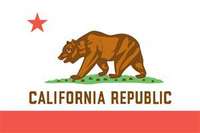Consumer Watchdog Urges Gov. Brown To Veto Google's Driverless Car Bill; Public Interest Group Terms Privacy Protections For New Technology Insufficient
 |
SANTA MONICA, CA--Sept. 10, 2012: California Gov. Jerry Brown should veto a bill that allows Google's driverless cars on the highway because it does not provide adequate privacy protections for users of the new technology, Consumer Watchdog said today.
In a letter to Gov. Brown, Consumer Watchdog Privacy Project Director John M. Simpson wrote SB 1298 "is completely insufficient. It gives the user no control over what data will be gathered and how the information will be used."
SB 1298, authored by Sen. Alex Padilla, was passed unanimously by the Senate. It was amended by the Assembly Transportation Committee and is now before the Assembly Appropriations Committee, where a hearing is scheduled on Thursday.
Read Consumer Watchdog's letter to Gov. Brown here: Consumer Watchdog
"A law regulating autonomous vehicles must provide that driverless cars gather only the data necessary to operate the vehicle and retain that data only as long as necessary for the vehicle's operation," wrote Simpson. "It should provide that the data must not be used for any additional purpose such as marketing or advertising without the consumer's explicit opt-in consent."
Consumer Watchdog said there are two reasons Google won't endorse simple privacy protections for its self-driving cars:
-- First, Google's entire business model is based on building digital dossiers about our personal behavior and using them to sell the most personal advertising to us. You're not Google's customer; you are its product -- the one it sells to corporations willing to pay any price to reach you. Will the driverless technology be just about getting us from point to point or about tracking how we got there and what we did along the way?
-- Second, computer engineers, who believe that more data is always better, are in charge at Google. They may not know what they would use data for today, but they think they may someday find a use for it and don't want any restrictions on them now.
"Consumers enthusiastically adopted the new technology of the Internet. What we were not told was that our use of the Information Superhighway would be monitored and tracked in order to personalize corporate marketing and make Google a fortune," wrote Simpson. "Now that Google is taking to the freeways, we must prevent inappropriate collection and storage of data about our personal movements and environment before we allow Google's robots to take to the roads and report back to the Googleplex."
The letter expressed concern that Google cannot be trusted to handle our data nor to respect our privacy:
"You may remember the last time Google deployed high tech vehicles around the world. The result was Wi-Spy, the biggest wire-tapping scandal in history when the company's Street View cars sucked up data from tens of millions of private Wi-Fi networks, including emails, health information, banking information, passwords and other data.
"Citing its 'Don't Be Evil' motto, Google claims it can be trusted with our information. Facts show otherwise. Recently the FCC released documents showing the Wi-Spy scandal was not a mistake or the work of one rogue engineer, as the company had claimed; but was part of the Street View design. The Commission fined Google $25,000 for obstructing its investigation. In the latest Wi-Spy development Google has just admitted that it had retained the ill-gotten data it pledged to delete almost two years ago.
"Last month the Federal Trade Commission imposed a $22.5 million penalty on Google for violating a consent agreement and hacking around privacy settings on Apple's Safari browser, which is used on iPads and iPhones. Simply put, there is no reason to trust or believe Google when it claims to be concerned about privacy."
In response to privacy concerns the Legislature made this amendment that Consumer Watchdog called completely inadequate:
(h) The manufacturer of the autonomous technology installed on a vehicle shall provide a written disclosure to the purchaser of an autonomous vehicle that describes what information is collected by the autonomous technology equipped on the vehicle.
"The time to ensure that this new driverless car technology has the necessary privacy protections is while it is being designed and developed. This is a concept known as 'Privacy by Design.' It means privacy issues are considered from the very beginning and solutions are 'baked in,'" wrote Simpson. "Trying to catch up after a new technology is developed and broadly implemented simply will not work. Google has demonstrated that it only pays lip service to privacy concerns and repeatedly violated consumers' privacy. That is why I call on you to veto SB 1298; consumers must give opt-in consent before any data gathered through driverless car technology is used for any purpose other than driving the vehicle."


